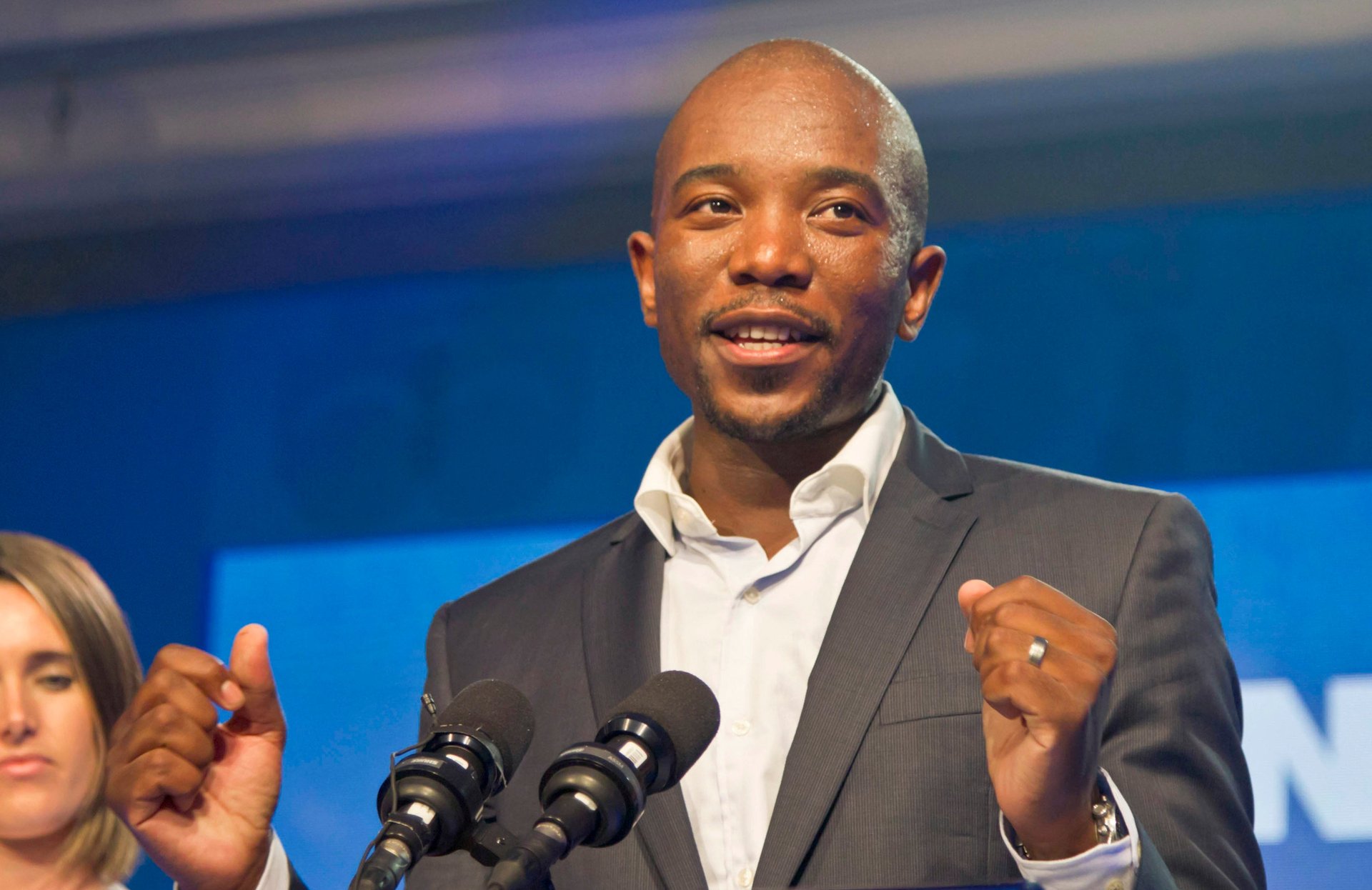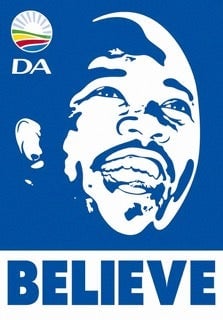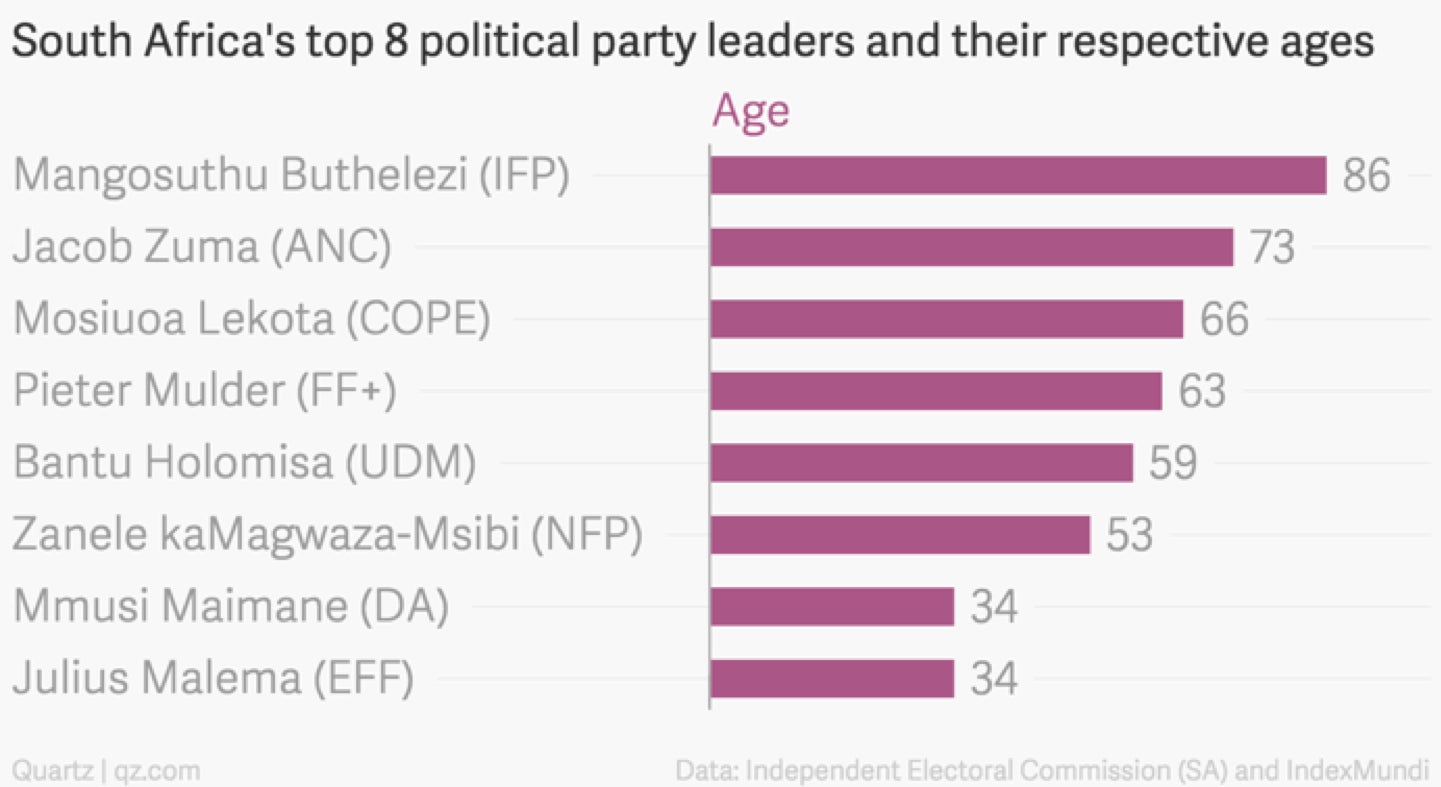The first black leader of South Africa’s opposition party is inspired by Obama
On Sunday afternoon, South Africa’s official opposition political party, the Democratic Alliance (DA), elected Mmusi Maimane as its first black leader.


On Sunday afternoon, South Africa’s official opposition political party, the Democratic Alliance (DA), elected Mmusi Maimane as its first black leader.
It’s significant not just because he’s the black leader of a party widely seen as a ‘white’ but at just 34-years old he’ll be the youngest leader of the official opposition party in South Africa’s post-Apartheid history. He’s replacing a Helen Zille, 64, who last month announced she will not be seeking reelection, though she will retain her position as premier of Western Cape province through Dec. 2019.
In the historic 1994 election, DA’s forerunner, the Democratic Party, garnered 1.7% of the national vote. Many were convinced that DA, a white-led minority party in the new South Africa, would soon fold. After decades of racial subjugation of black South African under Apartheid, why would black South Africans vote for a white minority party?
But DA turned the tide. From a measly 1.7% at the birth of the new South Africa, to 22,24% in last year’s national election, the DA has grown.
South Africa’s Obama, from Soweto
Maimane, raised in South Africa’s historical township of Soweto, is frequently ridiculed for trying to be “South Africa’s Obama”. The first signal was in 2013 during his campaign for premier of South Africa’s economic powerhouse, the province of Gauteng.
His campaign was littered with features of Obama’s historic 2008 campaign: his “Believe” poster is reminscent of Obama’s “Hope” poster, his slogan: “Believe in tomorrow” comes close to Obama’s “Change we can believe in.”

Give him the podium and a microphone and you’ll see just how much Obama has influenced him. He has all the public speaking techniques Obama has perfected: repetition of key nouns and verbs like “believe” and “hope”, inclusive language and the illustrative story on interracial relationships (Maimane is married to a white South African and Obama was raised by his white mother and grandparents.)
While many make fun of Maimane’s Obama-quirks, he signifies an important shift in South African politics. Like Obama in 2008, he portrays a youthful image of politics. Young people can relate to him, as well as another 34 year-old, Julius Malema, leader of the radical Economic Freedom Fighters (EFF) which is also shaking things up in South African politics.

South Africa’s President, Jacob Zuma, is a 73 year-old leading a country in which the average age is 25 years old. About 65,3% of South Africa’s population is 34 years old and younger. Maimane and Malema – the two youngest politcal leaders in South Africa – appeal to the the country’s youthful, black and rapidly urbanizing population.
For Maimane to take advantage of this, he’d have to convince his party that continuing race-based policies for black South Africans – particularly the economically marginalized youth – is neccesary for reddress, and not an impediment. The DA has often been accused of being “a party of white privilege”, offering ambigious responses to a key policy question that defines South African politics: Is race still a proxy for disadvantage?
If he manages to do so, who knows, many might turn out to vote for his party in the 2016 local government elections and the 2019 national elections. And if this happens, Maimane’s Obama-quirks would have come to good use.
After all, Obama’s most strident supporters and campaigners for his historic 2008 election were young first-time voters.
Disclosure: Before becoming a writer, Sibusiso Tshabalala was a member and provincial youth leader of the Democratic Alliance (DA) in the Free State, South Africa.